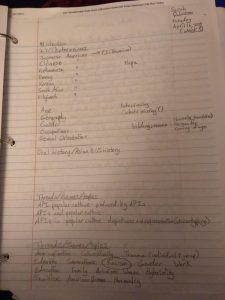
TagWeek 3
I’ve decided to do my project on representation -and lack thereof- in superhero-related media such as cartoons, comics, and movies. I chose this topic because superhero media extremely popular right now due to things like the Marvel and DC cinematic universes, and that popularity can sometimes obscure problematic themes and ideas that crop up in media and negatively influence our culture.
I plan to explore this topic through examining Asian American representation in Marvel and DC products (including movies, cartoons, and comics). This will potentially include any differences in character backstory between media, such as characters who were whitewashed in an adaptation, characters who were turned into racist caricatures or changed from being racist caricatures to being 3 dimensional characters, etc. I may also look at any racism and related backlash that characters and/or their actors experienced from comic book fandoms.
I know I’m probably going to find a lot of misrepresentation or no representation at all, so I was also considering creating a few “examples” of Asian American characters that are handled more respectfully, but I’m currently unsure of how I would go about doing that for this project.
It kind of bothered me a little bit that the author didn’t actually clearly define affirmative action anywhere that I could see, but I also noticed that it kind of seemed like they were saying that having a disproportionate number of Asian people is bad because there isn’t enough diversity, but having a mostly white people is fine because they’re the majority demographic in America. That part didn’t really make sense to me.
Also, I’d rather admissions people would choose people based on merit rather than saying “We have to have a certain number of these demographics but the rest can be white!”, which is what I think the author is saying seems to happen, which doesn’t seem fair to anybody. My understanding of affirmative action is that it’s meant to prevent admissions people from discriminating against people of color and favoring white people, but it seems like in practice it’s more like the way the author describes, where they’re just meeting a quota and paying lip service to the fact that they’re “diverse”.
Dale Minami
- Talks about how people “aren’t angry anymore’ about racism (in comparison to how things were in the 60s). (pg 11) He says that people today are more focused on empowerment and financial success. (pg 12)I agree that, especially in America, there is a big emphasis on empowerment of individuals and the collective community. However, judging by what I’ve seen and heard, I would argue that people are probably still angry, but are tired and disheartened by the fact that racism and other social issues are still happening after decades; even though America touts itself as this great place of freedom and individuality, there’s still a lot of stigma around being yourself rather than conforming to society, which includes appreciation of other cultures that is not from a pre-approved white male perspective.
© 2025 Sarah's A-POP Blog
Theme by Anders Norén — Up ↑